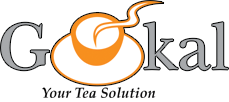Our Standard
- ISO 22000 – 2005 (GMP & HACCP)
Food safety management systems
The ISO 22000 family of standards relate to food safety management systems and are designed to help organizations of any size and at any stage in the food chain to ensure they meet the needs of customers and other stakeholders. The standards are published by ISO, the International Organization for Standardization and are available through National standards bodies.
ISO 22000 deals with the fundamentals of food safety management systems. ISO 22000:2005 deals with the requirements that organizations wishing to meet the standard have to meet. It has been designed to be compatible with other management system standards such as ISO 9001 and can be implemented within an integrated management system.
Independent confirmation that organizations meet the requirements of ISO 22000:2005 may be obtained from third party certification bodies.
ISO 22000:2005 specifies the basic requirements for a food safety management system (FMS) that an organization must fulfil to demonstrate its ability to consistently produce food products which are safe for the end consumer.
The standard can be used for certification/registration and contractual purposes by organizations seeking recognition of their food safety management system. ISO 22000:2005 delivers safe product, and covers all organizations in the food chain, both direct and indirect food chain.
ISO 22000 has been developed to aid harmonization of approaches to managing food safety, not for just one part of the food chain, but for all organizations in the food chain and for those organizations supplying to the food chain, materials and services that could impact on the safety of food.
The standard combines the key elements to enable management of food safety along the food chain including: integrating the principles of HACCP and application sequence developed by Codex Alimentarius Commission; system management; control of food safety hazards through pre-requisite programmes and HACCP plans; interactive communication with suppliers, customers, regulators and consumers and, continual improvement and updating of the management system.
The standard has been developed as a food safety management system applicable to all organizations in the food chain and to suppliers of services and products to the food chain, and has been designed to enhance communication on food safety issues within the food chain to help raise standards of food safety within the food industry and thus harmonize approached to managing food safety globally.
- ISO 9001 – 2008
The ISO 9000 family of standards relate to quality management systems and are designed to help organizations ensure they meet the needs of customers and other stakeholders. The standards are published by ISO, the International Organization for Standardization and are available through National standards bodies.
ISO 9000 deals with the fundamentals of quality management systems, including the eight management principles on which the family of standards is based. ISO 9001 deals with the requirements that organizations wishing to meet the standard have to meet.
Independent confirmation that organizations meet the requirements of ISO 9001 may be obtained from third party certification bodies. Over a million organizations worldwide are independently certified making ISO 9001 one of the most widely used management tools in the world today.
ISO 9001 specifies the basic requirements for a quality management system (QMS) that an organization must fulfil to demonstrate its ability to consistently provide products (which include services) that enhance customer satisfaction and meet applicable statutory and regulatory requirements.
The standard can be used for certification/registration and contractual purposes by organizations seeking recognition of their quality management system. ISO 9001 has been organized in a user-friendly format with terms that are easily recognized by all business sectors.
- ORGANIC
- HALAAL





